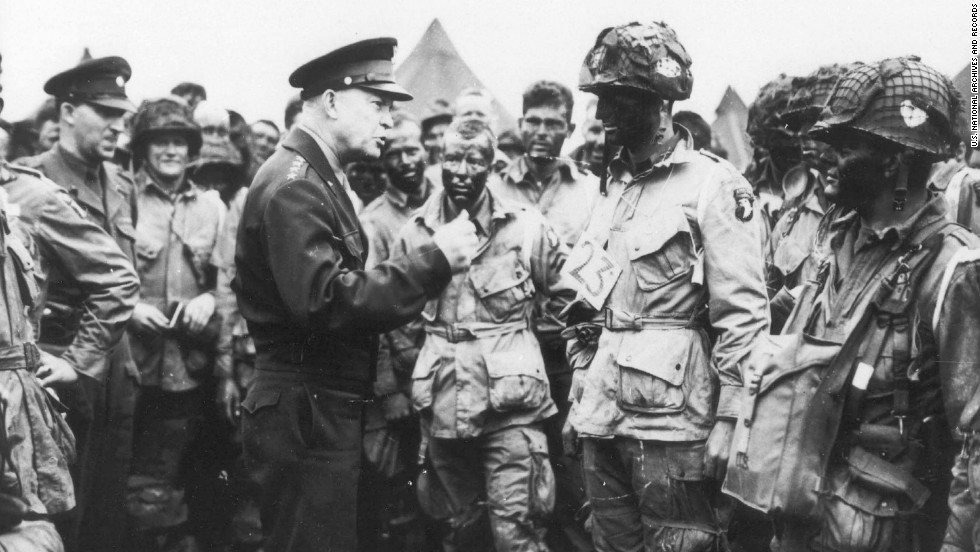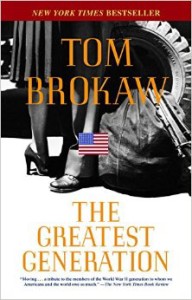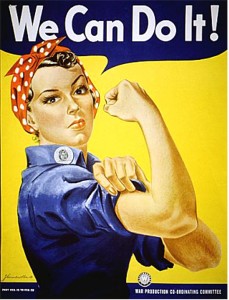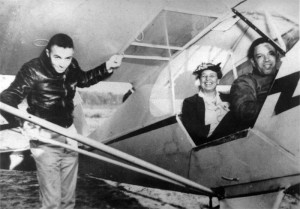“This generation of Americans has a rendezvous with destiny.” – Franklin Delano Roosevelt
During my junior year of high school in 2002, we were given an assignment by our American History teacher to interview a member of the World War II generation. As that generation had reached the twilights of their lives and begun passing away at accelerated rates, our teacher wisely knew that the window of opportunity to preserve the remarkable stories of that special group of Americans was beginning to close. Accordingly, we recorded our interviews on tape so the stories could be preserved for future generations to hear from an archive in our high school library. I had the privilege to interview World War II veteran Anthony P. Romeo. It has been 14 years since I spoke to him but I still remember our conversation vividly. He noted that he was deployed to the Pacific near the end of the war. When he arrived on his transport ship to the Philippines, he recalled the smell and sight of the destruction of war. He could only describe the scene with one word: terrible. The horrified tone of how he spoke that word sticks with me today. Another memorable part of our conversation was when he described the star system used back in World War II for the families of serviceman back home. There were three colored stars that were put on the houses of the families. Blue star meant they had someone in the service. A silver star meant he had been sent overseas. A gold star somberly meant that he would not be coming home. After Anthony explained out that system, he expressed his wish that the stars would be brought back to acknowledge the tremendous sacrifice and burden of military families today. Near the end of our discussion, Anthony also spoke about President Harry S. Truman’s decision to drop the atomic bombs on Hiroshima and Nagasaki. He noted that he read many books about Truman’s thought process as well as how the pilots of the Enola Gay, the plane that dropped the first bomb, never lost a night of sleep over their mission. Ultimately, Anthony agreed that it had to be done to save the countless lives of American soldiers who would have died in an invasion of Japan. Since he arrived in the Pacific close to the droppings of the atomic bombs, he never saw fought in combat during the war. He struggled with whether he was glad he never fought in an actual battle. Of course, Anthony was a hero because he served his country and was willing and eager to do his duty for it. Nevertheless, he did not consider himself a hero and wished he could have done more. Anthony was symbolic of the uncanny, special character of his generation. They were selfless with a tremendous sense of responsibility and duty for their country. Despite their great sacrifices, they demonstrated even more humility. They did not want thanks or attention. I recently Googled Anthony and somberly saw that he passed away on August 29, 2015 at the age of 89. I only saw and spoke to him one more time shortly after my interview. He was very appreciative that I took the time to listen to and document his story. Unfortunately, I was shy and much too reserved to express my true feelings at the time. I wanted to tell him that he and his generation inspired me and that I would never forget his story.
Our teacher got the idea for the project from Tom Brokaw’s The Greatest Generation. Of course, we were assigned to read the book. It is a brilliant and uplifting collection of priceless stories of some of the men and women Brokaw dubs the Greatest Generation. In the prologue chapters, Brokaw does a thorough job explaining his reasons for writing the book as well as his case for why the World War II generation is the Greatest Generation. In the spring of 1984, Brokaw was assigned to visit Normandy, France and prepare a NBC documentary for the 40th anniversary of the D-Day invasion. During this time, he listened to many veterans tell their stories. Naturally, he was in awe and grateful for the contributions of the men and women in that era. Accordingly, the experience was the inspiration for Brokaw writing The Greatest Generation as a tribute to the men and women of that generation. His arguments for his claim are plentiful and convincing. The men and women in that time grew up and suffered through the “economic despair” of the Great Depression, “answered the call to help save the world from the most powerful and ruthless military machines ever assembled”, and returned home to “convert a wartime economy into the most powerful peacetime economy in history”. Of course, no generation is perfect. For this reason, Brokaw is also fair in pointing out that they “allowed McCarthyism and racism to go unchallenged for too long”, were resistant to the liberation of women, and “initially failed to recognize the difference between their war and the one in Vietnam”. Is it plausible to definitively declare one generation as the Greatest Generation? Of course not. Other generations made extraordinary contributions to the country and the world. As a believer in the human spirit, I would like to think most generations have the capability to rise to similar challenges. Nevertheless, it is simply a game of logic and diction when discussing which generation is the greatest. It should not diminish any of the accomplishments of the World War II generation. When the world needed them to save it from tyranny, they answered the call selflessly and decisively. Afterwards, they became pioneers and the backbone of American society who helped shape a better world. We enjoy the lives we do today because of their sacrifices. Even if they are not the greatest generation, their contributions to the world are among the most significant in history. As such, they should be revered and honored. When I read The Greatest Generation 14 years ago, I needed to read it for school so I read it as quickly as possible. On my re-read, I was able to take my time and properly appreciate all the individual stories recorded by Brokaw. The book is even better than I remember it. He does an amazing job in the storytelling of each person in his book. I also like how he categorizes each story (e.g. ordinary people, home front, heroes, famous people, etc.). It provides a broad perspective of the incredible people who lived in the time. In addition, he does a brilliant job in linking and utilizing the stories to explain the good and bad aspects of the generation for a balanced view of the era. As a history enthusiast, I also enjoy understanding how certain elements of society began and developed. Brokaw does a wonderful job explaining how certain individuals in his book helped shaped the second half of the 20th century and the present. I definitely recommend The Greatest Generation as an incredible and uplifting read, especially if you are fascinated by American History and/or World War II.
Even before my re-read, the story from the book, that stuck with me the most over the years, is the story of Thomas Broderick. During the war, he got up too high in his foxhole. As a result, he was shot through the left temple and blinded. Understandably, he was initially very angry at the world for his predicament. Eventually, he learned to accept his blindness and succeed in life in spite of it. In addition, he went with his mother to Lourdes, France to pray for a miracle. He asked that “If I can’t have my eyesight back, can you find a girl for me to marry?” As fate would have it, he ironically met his wife, Eileen, on a blind date. They had a great life together with five kids. Tom built a successful insurance company. In addition, he created systems to accomplish tasks (e.g. household chores) as if he was not blind. He even refused to get a disability tag for the family car because he did not feel he had a disability. Moreover, he helped form an organization, Blinded Veterans Association, to help other veterans adjust and thrive in their new life. As he reflected on his blindness, he noted “It was my fault for getting too high in the foxhole”. This story has stayed in my thoughts throughout the years because it is a remarkable account of personal responsibility and perseverance. I have my doubts whether I could ever let go of the anger of being blinded by a bullet the way Thomas Broderick was. From my perspective, it is unnatural yet amazingly graceful that he took personal responsibility for it. In my opinion, the sense of personal responsibility is one of the strongest characteristics of Broderick’s generation. His personal story is very inspirational. It is a powerful example of how we should look at ourselves and what we could have done better than immediately looking to blame someone or something else. In addition, it is a reminder that the best approach to life is an optimistic one. Regardless of the challenges we may face in our lives, we should focus on the positive, what we can do, and what we are grateful for rather than the negative, what our shortcomings or misfortunes are, and what we do not have. A “glass half full” approach and a strong work ethic will allow us to grow and achieve more going forward. Thomas Broderick is a shining example of those virtues.
Other common, admirable traits of the generation are selflessness and sense of duty. A fine example of them is Lloyd Kilmer. His father was humiliated during the Great Depression when he needed to apply for WPA, a government relief program. Lloyd was a Bellhop in Rochester, Minnesota when the war broke out. He trained to be a B-24 pilot and flew his plane over the beaches of Normandy over D-Day. His plane took hits over Germany during a bombing run on a tank factory. He crash landed in Holland and was taken as prisoner of war. He was consistently interrogated at gun point and put in solitary confinement in an attempt to torture him for information. Nevertheless, he never broke and only gave his name, rank, and serial number. He lost 60 pounds before he was liberated. When he returned home, he earned his high school and college diplomas before joining Omaha’s largest firm for savings and loans. In his senior years, he diligently took care of his wife, who suffered with Alzheimer’s for 10 years. He never complained and only hired a nurse for a few afternoons a week. His military service and commitment to his ailing wife demonstrate his selflessness and sense of duty. Brokaw also utilizes Kilmer’s story to discuss the divide of the country and generations caused by the Vietnam War. Lloyd and his son, Frank, argued significantly over the war. Not surprisingly, Lloyd felt “betrayed by his sons for not agreeing with his values and views about the war in Vietnam and that era in general”. Lloyd’s generation willingly and unequivocally performed their duty for the country. Consequently, they had disdain for the hippies who they felt were not doing the same. It was a typical conflict between the World War II generation and their Baby Boomer children. I also found it insightful when Brokaw further breaks down the reasons for the discord. In his words, “The fathers were wholly unaccustomed to a permissive society. They were happy simply to be alive and, given all they had been through, they had this nagging fear it could happen again. Their children came of age at a time when excess, not deprivation, was the rule, when their government lied about a new war, when the concepts of duty and honor were mocked”. Father and son reconciled when Frank witnessed and admired his father’s commitment to his mother in her time of need. From the different prisms of their life experiences and perspectives, their individual and differing views are very understandable. As we see throughout history and today, it is a recurring challenge to bridge the differences between a generally more liberal younger generation and typically conservative older generations. From my perspective, one of the most interesting elements of Brokaw’s book is how the values and beliefs of the Greatest Generation adapted to or conflicted with drastic changes throughout the second half of the 20th Century.
Of course, the same values and beliefs and accomplishments of that generation also shaped certain advances for the world (e.g. technological, societal, etc.). For example, Brokaw tells the story of Charles Briscoe. He was a farm boy who worked at Boeing and helped engineer B-29 long range bomber then the Boeing 737 commercial airliner. Farm boys were recruited by Boeing during the war because they were accustomed to working long hours, working well with their hands, and being inventive. In terms of society, one of the major catalysts to women entering the workforce and the feminist movement occurred during World War II. As illustrated by the Rosie the Riveter posters, women were needed in the factory and other domestic industries back at home while the men went overseas to fight the Axis Powers. One of those women is Dorothy Haener. She worked for Ford Motor Company, specifically on the production of the B-24 bomber. After she experienced independence, she could not conform to the traditional housewife role expected for women at the time. Instead, she became a union leader for UAW and fought for equality for women. She also learned to utilize guile and wisdom by fighting for women’s right in the context of equality for all union workers since championing only for women would have been a political impossibility in her time. Other women, like Mary Hallaren and Jeanne Holm, were pioneers for women in the military. In addition to domestic demands, women were also needed to fill some non-combat military positions: “military clerks, drivers, telephone operators, medical technicians, cooks, and couriers”. As such, the Women’s Army Auxiliary Corps (WAAC) was formed. When her size, five feet tall, was questioned; her response was perfect “You don’t have to be six feet tall to have a brain that works”. She moved up in the ranks and was eventually asked by Dwight Eisenhower to “oversee the upgrade of the Women’s Army Auxiliary Corps to the Women’s Army Corps which would give women a permanent part in the military establishment for the first time”. Despite opposition from the House Armed Services Committee, she successfully lobbied for women in the military and WACs (Army) and WAVES (Navy) were formed to provide women with permanent positions in the military. Jeanne Holm started as an Army truck driver but was accepted and trained as an officer. After the war, she tried to return to civilian life and attended college on the GI Bill [initiative to pay for the education of returning veterans]. However, she was broke and trying to figure out what she wanted to do with her post-war life. After the Women’s Armed Services Integration Act was passed, she was asked to return to regular duty and immediately accepted. The book details many more contributions both women made to the advancement of women in the military. Eventually, Holm was promoted as high as a 2 star, Major General. Again, special individuals, like Charles Briscoe, Mary Hallaren, and Jeanne Holm from the Greatest Generation, helped shaped the modern world, a better one than they inherited and grew up in. Brokaw does an amazing job highlighting some of those contributions and explaining how they moved society forward.
In order to provide a complete and balanced view of the Greatest Generation, Brokaw also discusses the major flaws of the generation. In particular, racism is one of its biggest black eyes. For example, Martha Settle Putney was a black woman who served as a lieutenant teaching calisthenics and drills. When she was interviewed by Brokaw, she still remembered “the anger she felt when a group of German officers, who were POWs at a garrison in the Des Moines area, were invited into the Fort Des Moines officers’ club while the black officers were barred.” Unfortunately, it is an example that reflects the racism and discrimination she endured during her military career. Another story that demonstrates the racism of the time is the experiences of Johnnie Holmes. He served in the army during the war. During training in Kentucky, one of his friends was “found dead on railroad tracks near an all-white neighborhood in Alexandria”. Despite the official story that he was drunk and stumbled on the tracks, his fellow soldiers suspected and assumed he was beaten to death because he was black. They gathered weapons to go to war against the community before their commanding officer reasoned with them and calmed them down. It was one of several unfortunate indignities experienced by Holmes. Similar to Martha, he witnessed POWs granted more privileges than black soldiers. One incident involved his platoon lieutenant, the great Jackie Robinson who would later break the color barrier in baseball. During a night out on the town, Holmes felt a pain in his chest which turned out being pleurisy, an inflation of the thorax membranes, and made it difficult for him to walk. Robinson helped Holmes onto a bus to return to the base and get medical treatment. Robinson refused to move Holmes to the back to the bus because of the condition. Consequently, they were arrested when they returned to the base. It was a tragedy that young people were willing to serve and die for their country but still discriminated against.
In defense of the Greatest Generation, I think it is unfair to condemn them through the hindsight of presentism. There are inequities and moral depravities in each generation and society that requires time to solve. People are born into paradigms that are difficult to break. As far as most people are concerned, certain things are how they are supposed to be since they have been taught them since birth. It is not fair to condemn a generation for not being on the correct side of history on every major issue. In addition, World War II played a significant part in advancing racial equality. For example, there were many black soldiers who distinguished themselves during the war. One of the most famous black squadrons were the Tuskegee Airmen. They were fighter pilots who escorted bombers. During World War II, bombers were slow, large planes that were shot down on a regular basis. The Tuskegee Airmen had a great record of escorting and protecting bombers. Although they faced racism and discrimination initially, they were eventually requested by bombers as their escorts out of merit. Naturally, the bomber pilots were willing to put their biases aside when their lives were on the line. Tuskegee Airmen (1995) is an excellent HBO television movie about the squadron, starring Laurence Fishburne and Cuba Gooding Jr. I highly recommend it. These awesome records of accomplishment built a foundation that minorities are equals and should be treated as such. Furthermore, President Harry S. Truman was angered and disgusted by a number of black veterans who returned from World War II and lynched by communities back at home. It became a rallying cry for Truman to initiate an aggressive civil rights program. Obviously, there was a long road to go for civil rights afterwards but it is my belief that events during and immediately following the war were key initial catalysts to change.
In addition to the stories above, Tom Brokaw’s The Greatest Generation documents a diverse set of stories. It has heartbreaking yet heartwarming love stories like the one of star crossed lovers Daphne Cavin and Raymond Kelly. It tells tales of valor of people such as Joe Foss, who is Medal of Honor recipient and ace fighter pilot. It touches upon famous people like George Bush, who was nearly killed in combat but survived and went on to become President of the United States, or Maurice “Hank” Greenberg, who became CEO of American International Group (AIG) and transformed it into a financial giant. There are many other incredible stories and I definitely recommend The Greatest Generation as an inspirational, uplifting book to read all of them.
About Pat Wong
Patrick is a contributor for Rookerville. He is an avid sports fan. Before joining Rookerville, he was part of a defunct New York Yankees message board, NYYankeefans, where he was its top poster and was inducted in its Hall of Fame for his contributions. Patrick is also a passionate fan of movies. He has enjoyed reading movie reviews over the years and is excited about the opportunity to review movies. Patrick is also a passionate foodie. He is Yelp Elite for three years in a row and shares his great finds in New York and his travels.




